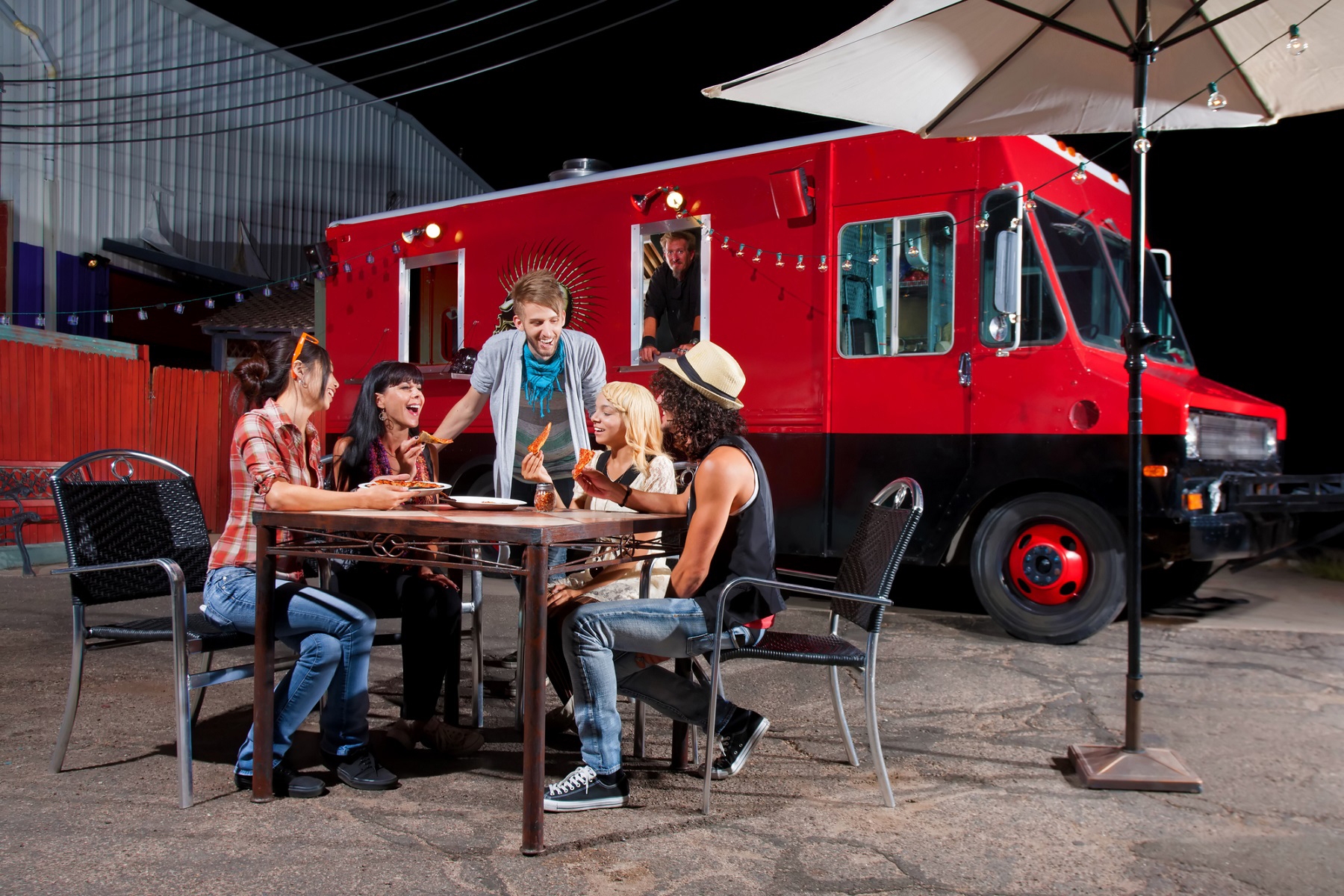
The food truck phenomenon is the fastest growing type of restaurant business in the nation. While standard brick-and-mortar restaurants grow at approximately 2 percent each year, food trucks continue to experience unprecedented growth, at over 7.5 percent annually. Food trucks have become incredibly popular in cities such as Portland, Oregon, where there are approximately 500 food carts at any given time. With all this success, one might think that starting a new food truck business might be a foolproof new business plan. However, without the right type of food truck insurance, starting a new mobile restaurant could be disastrous. There are three most common mistakes when it comes to securing insurance for your new ambulatory business, and it’s easy to avoid them.
Before talking about mistakes, however, it’s a good idea to review some basic insurance information. General liability is the most common type of insurance. General liability insurance provides coverage for lawsuits involving injury or property damage from a third party. Because it is not likely you would be able to operate a business without this type of insurance for food trucks, not having general liability insurance is not a common mistake. If it happened, though, it would be a big mistake.
1. Property Damage Insurance
Property damage is the type of food truck insurance that will protect your business from fire, theft, collision and vandalism while it is parked, or if someone else is responsible for causing damage while it is moving. This coverage is important because the likelihood of your truck experiencing property damage increases because it’s mobile. It is more likely that someone will collide with a moving truck than a stationary restaurant. In this instance, property is the truck itself and most attached equipment, such as a stove that is connected by a gas line. One common mistake business owners make is thinking property damage insurance for food trucks will cover accidents while the vehicle is moving. It does not.
2. Auto Liability
Because food trucks are transportable, obtaining the appropriate amount of auto liability insurance is critical. Auto liability provides food truck insurance to your vehicle while it is moving, but once it’s parked, this coverage is no longer applicable. A common mistake new business owners make is not getting a sufficient amount of auto liability because they assume their other coverage will be sufficient or that they won’t be moving their vehicle often. Auto liability is an incredibly important type of insurance to have in this business.
3. Contents Coverage
Contents coverage is the separate insurance policy that covers any of the non-attached equipment in your truck. This could include cooking equipment, pots and pans, cutlery, dishware and anything else you need to operate your business. One big mistake new food truck owners make is not obtaining contents coverage because they assume that either property damage or their auto insurance policy will cover anything inside the truck. This is not true, and losing all non-attached equipment could lead to bankruptcy for some small businesses.
Obtaining sufficient coverage for property damage, auto liability and contents will help alleviate three of the most common mistakes that new food truck business owners make.
